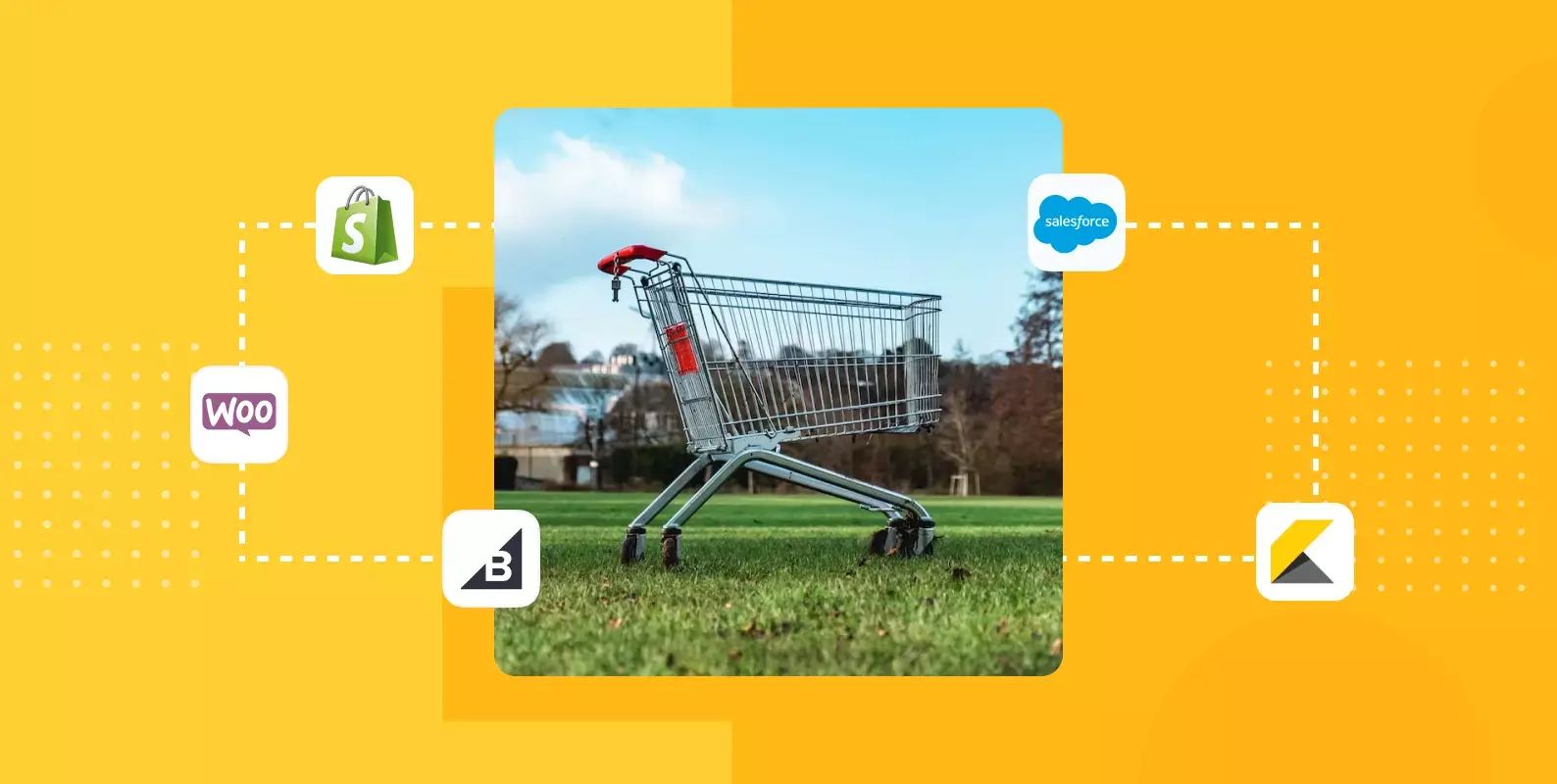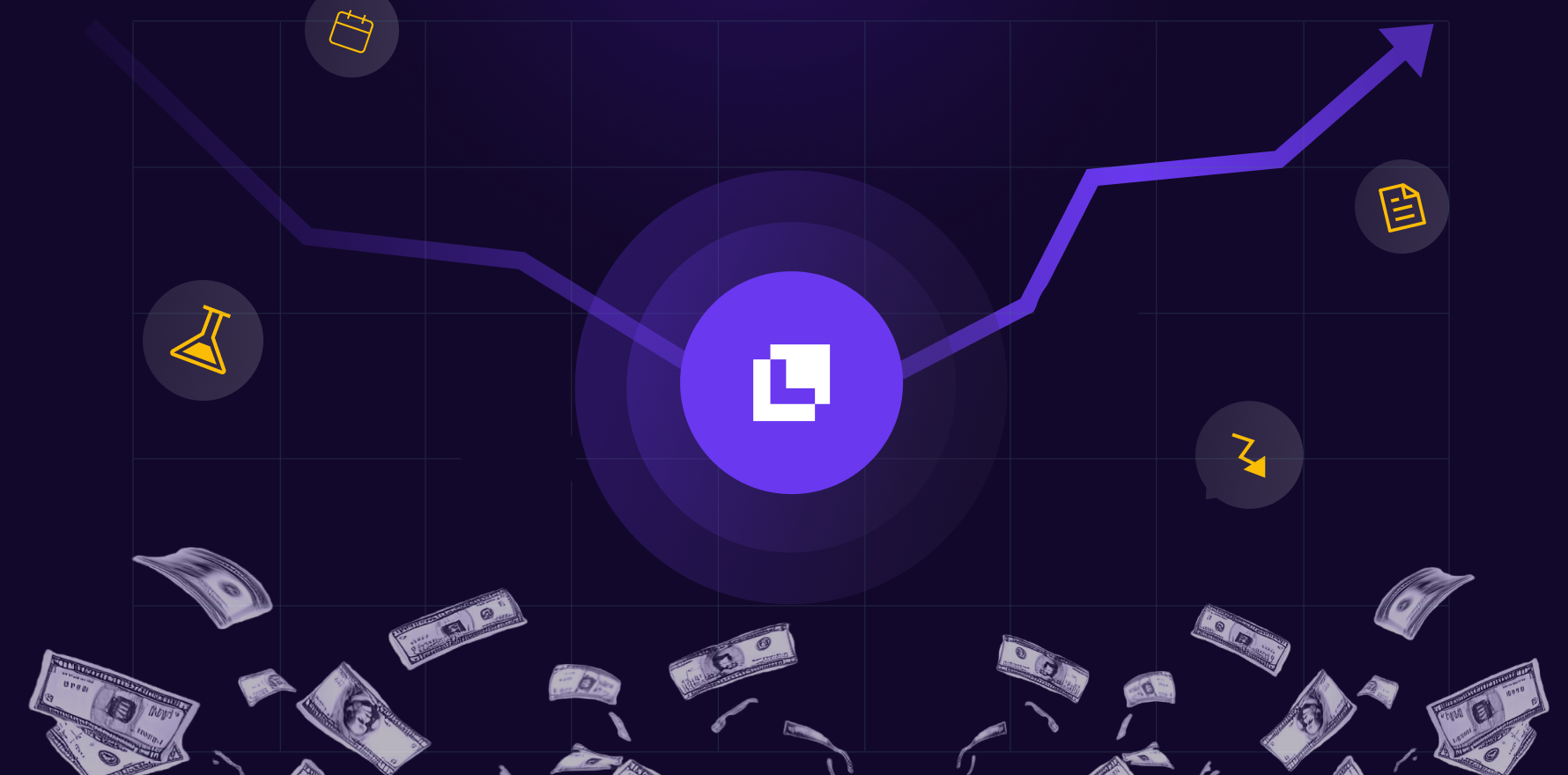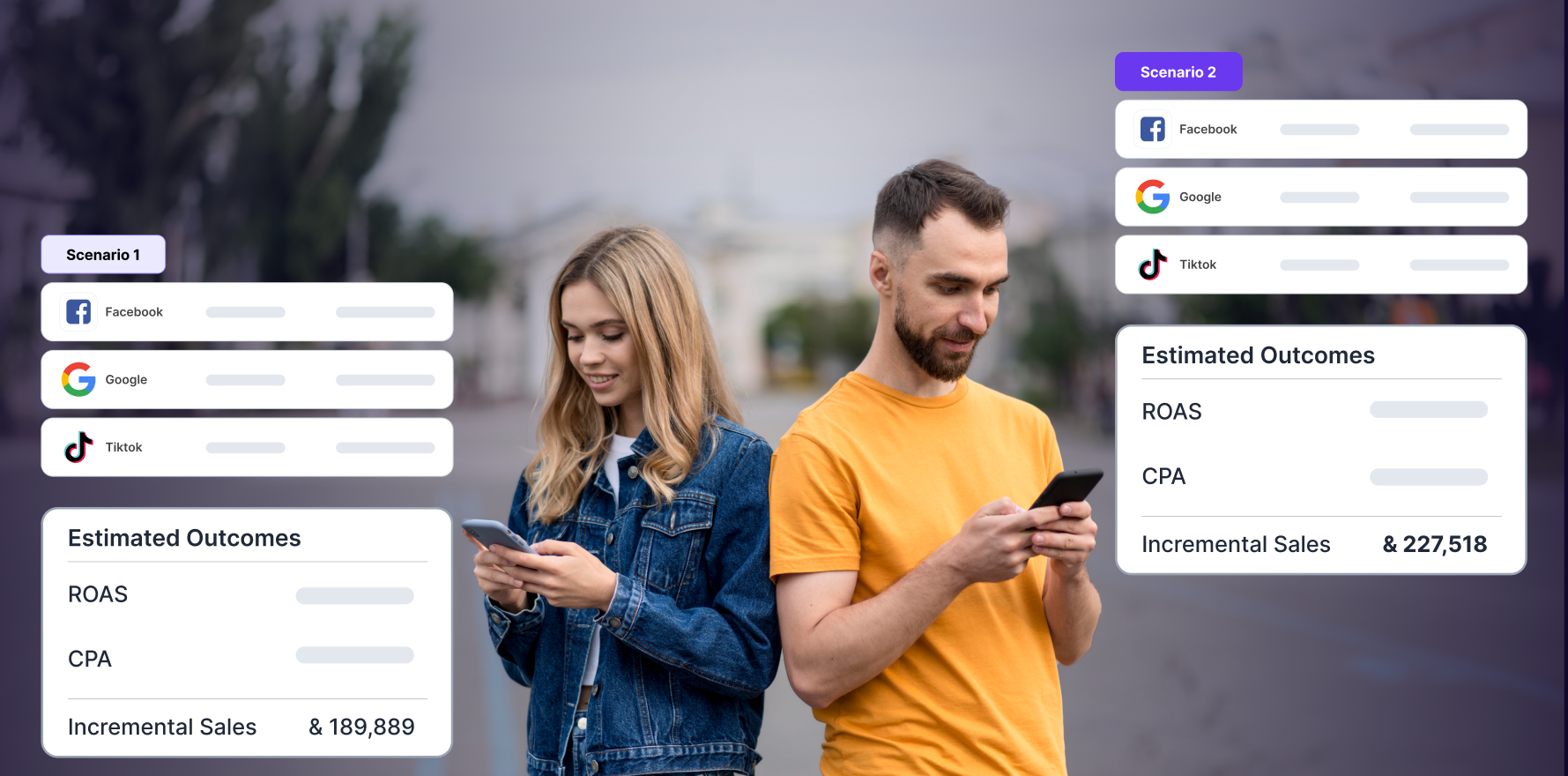The ecommerce industry has witnessed unprecedented growth in the last few years, so much so that it has become an indispensable part of the global retail landscape. With a whopping 5 billion internet users across the globe, online retail sales surpassed US $5.2 trillion in 2021-22. In fact, reports suggest ecommerce will contribute a staggering 24% to global retail sales by 2026.
However, one needs to understand that besides the pandemic, the ever-evolving technologies and ease of access have led to this massive growth of ecommerce. Today, when shopping online people access an ecommerce store not only through a web browser but also through mobile apps, and social media websites such as Instagram, IoT, and more.
So what do these changing trends mean for an ecommerce business owner? Investing in a technology that enables them to deliver a highly customizable user experience across platforms. This is where headless ecommerce comes into the picture. The term headless refers to a headless architecture where the back-end and front-end of a platform are separate from each other, which means the functional/business logic layer is separate from the content presentation layer.
Today the market has a plethora of headless ecommerce platforms available and choosing the one that best suits your business requirements can be a challenge. But before we move to our top picks, let’s help you understand what exactly is headless ecommerce and how you stand to benefit from the same.
Headless Ecommerce: What is it?
Simply put, headless ecommerce is an ecommerce without a front-end interface referred to as head. A completely different approach compared to the traditional one, here the ecommerce store is dependent on the backend and delivers completely customized content using APIs and frameworks for the store to work efficiently on multiple devices. The developers have to produce content such as products, blog posts, reviews, and prices in line with the potential audience’s requirements. The outcome is a highly adaptable online store that targets customers at different touch points enabling the store to work efficiently on multiple devices.
Benefits of Headless Ecommerce
1) Seamless integration:
Headless ecommerce platforms are driven by APIs, giving them the ability to integrate easily with other platforms like marketing automation systems, CRMs, or any other such tool.
2) Conversion optimization:
It’s far more adaptable than the conventional architecture, allowing ecommerce store owners unlimited customization, which in turn aids in providing a fantastic experience for customers and increasing conversions.
3) Better Customer Experience:
Being a highly adjustable platform implementing any change, customization, or deployment can be done without disturbing the underlying technology that runs your store. Headless ecommerce enables you to build a store that’s customer-centric and built around the needs of your end user.
4) Omnichannel experience:
Today on average a majority of people use more than two devices. Users will engage with your store on more than two devices before making the final purchase. They may check out a few products on the mobile app and then compare them on the website using their desktop/laptop. A headless ecommerce platform lets you build an omnichannel store to cater to this audience using multiple devices.
5) Better online engagement:
A personalized experience is one of the most basic expectations online shoppers have nowadays. With the help of a headless ecommerce platform customizing the front end with options each customer is looking for is now possible. More relatable content means the user is engaged with your online store for a long time which eventually leads to more sales.
6) Cost-effective:
It may seem like an expensive option to design a front-end environment to cater to cutting-edge digital platforms, but the new customers, repeat business, and expanded audience reaches it brings make it a very cost-effective solution in the long run.
If you own an ecommerce business with a vision to grow big you must consider utilizing the capabilities of a headless ecommerce platform. We have put together our top 10 picks for you to choose from. So let’s get started!
Top Features of a Headless Ecommerce Platform
It’s worth noting that the best headless for your ecommerce website will depend on your specific needs and requirements. Some factors to consider when choosing a headless ecommerce platform include:
- Ease of use and learning curve
- Customization options
- Integration with other tools and platforms
- Scalability
- Pricing
- Customer support
We recommend researching and comparing different headless ecommerce options to find the one that best fits your needs.
Top 10 Headless Ecommerce Platforms
Let’s walk through some of the most popular headless ecommerce platforms available.
1) Shopify Plus
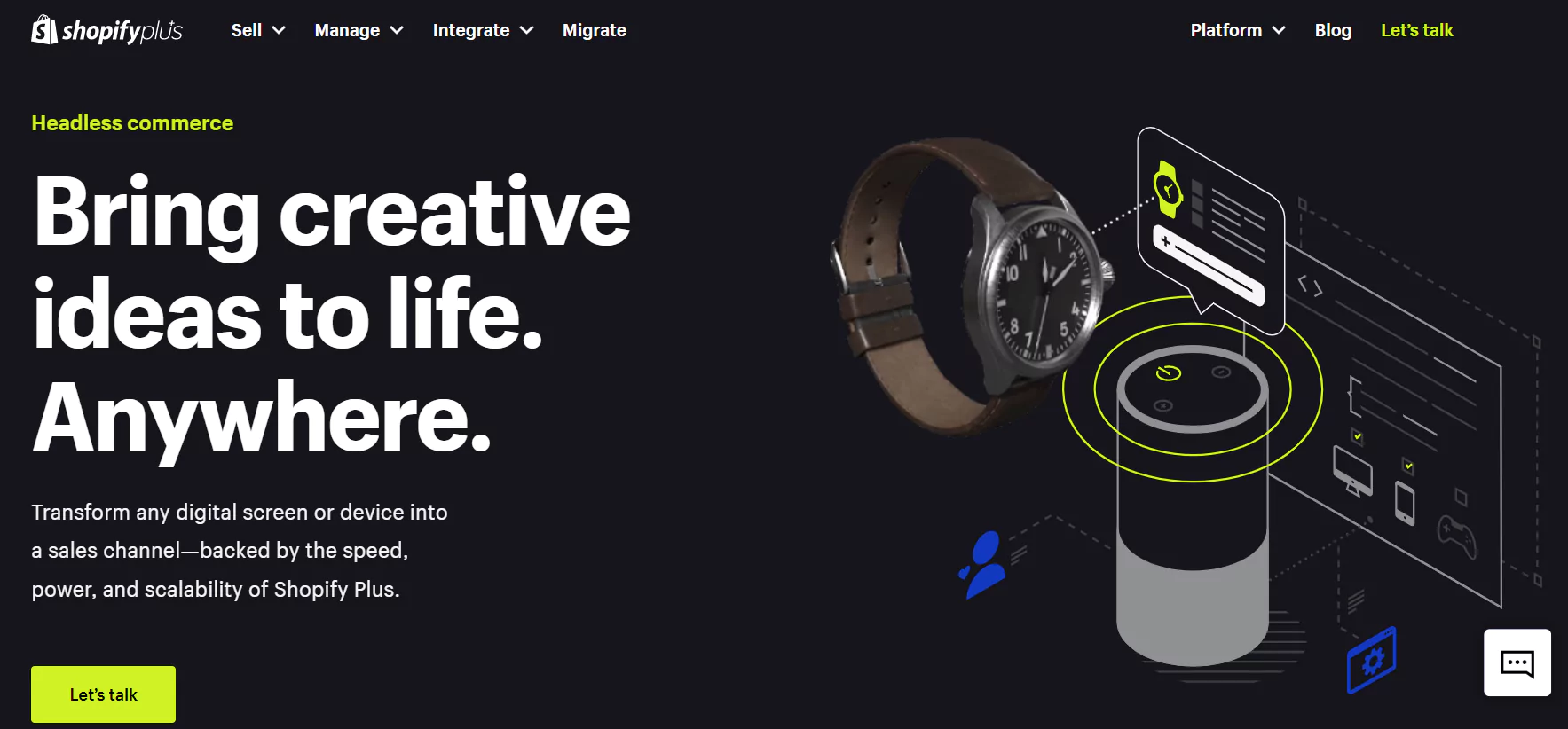
Powering over 875,000 online stores across the US Shopify Plus is the number one headless ecommerce platform available. An advanced version of Shopify, the platform is built to target enterprise businesses.
Key features
- Enables removal of the front-end design from back-end infrastructure.
- Offers a global hosting solution that helps deploy and scale storefronts for free.
- Supports integration with existing business tools such as CRM, ERP, CMS, and more.
- Helps deliver an omnichannel experience by turning every screen into a digital storefront and facilitates updating content across all channels with CMS (content management system).
- 24×7 technical support on emails, live chat, and calls.
Pricing: The pricing starts from US $2000/month or there is a variable fee option for businesses with high volume.
2) BigCommerce
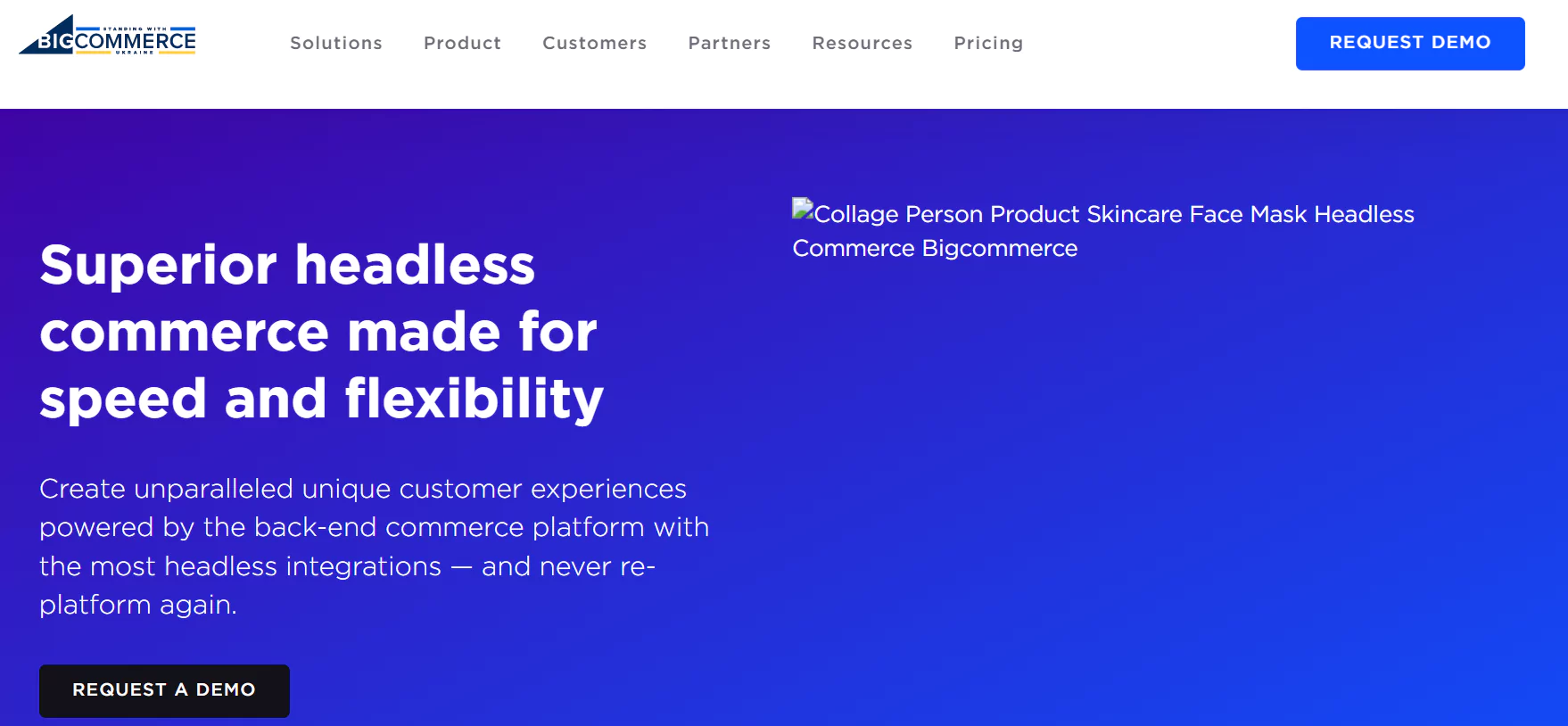
A platform best suited for growing ecommerce brands looking at expanding their reach and making their day-to-day operations streamlined and seamless. It helps separate the commerce engine from the presentation feature.
Key features
- User-friendly dashboard to manage items, orders, and refunds.
- Allows you to segment customers based on product access, price, and promotions.
- Attractive mobile-friendly themes and templates to choose from (both premium and free).
- User interface that works well on any device (desktop, laptop, smartphone, smartwatch).
- Effective CMS
- 24×7 tech support.
Pricing: BigCommerce offers a free-trial period for the first 15 days. Once the free trial is over one can choose from the following 4 plans:
- The standard plan starts at $29.95 per month
- Plus starting at $79.95 per month
- Pro at $299.95 per month
- Enterprise (price details available on request)
3) Magento/Adobe Commerce
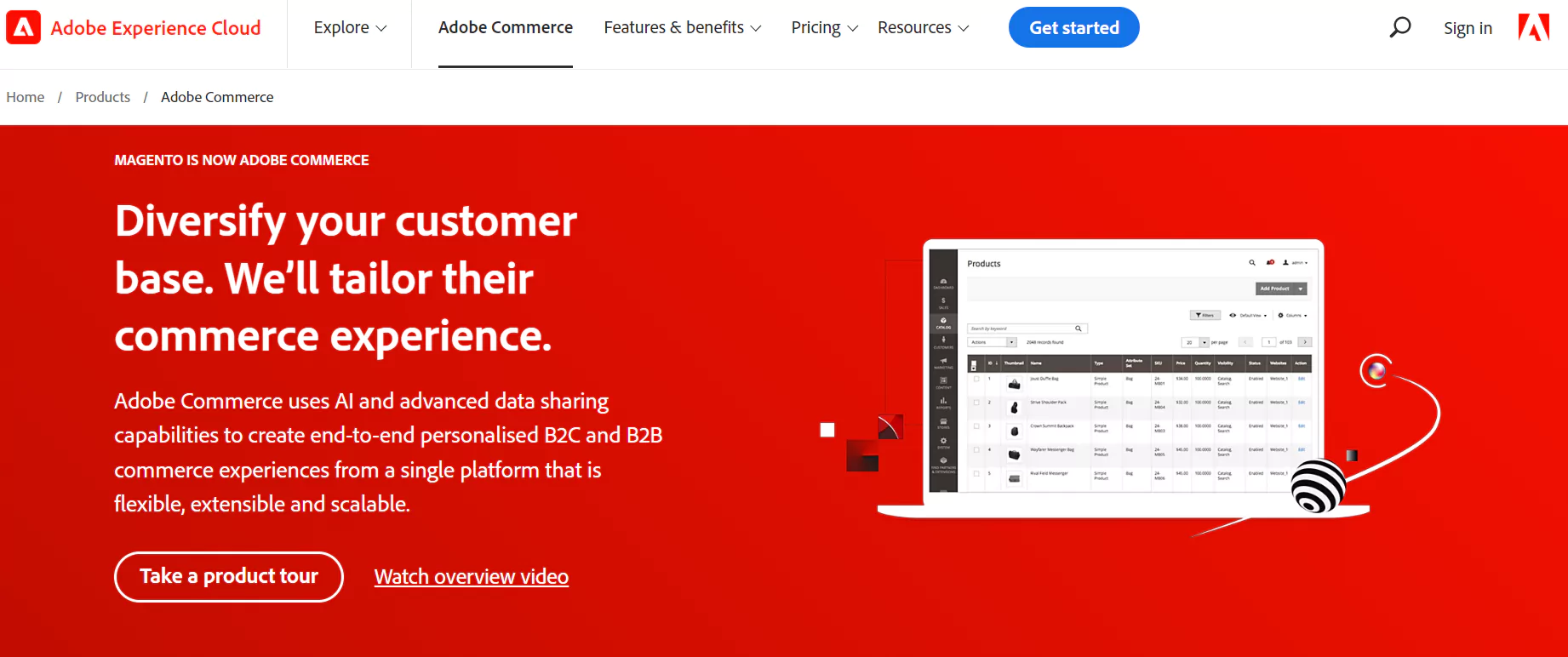
Magento is an open-source ecommerce platform that enables brands to deliver bespoke applications based on customer requirements. It offers fully customizable experiences that are flexible and can work with a wide range of third-party apps that businesses often use. To ensure optimal performance and scalability for your Magento-based applications, it’s essential to choose a reliable Magento hosting provider.
Key features
- Manage all your brands and customers (end users or businesses) on a single platform.
- Fully integrated payment solution to securely manage order data and payment from various storefronts on a single dashboard.
- AI-powered live search tool to display the most relevant search results for B2C shoppers.
Pricing: The company offers an Adobe Commerce Pro plan the pricing for which is available on request.
4) Salesforce Commerce Cloud
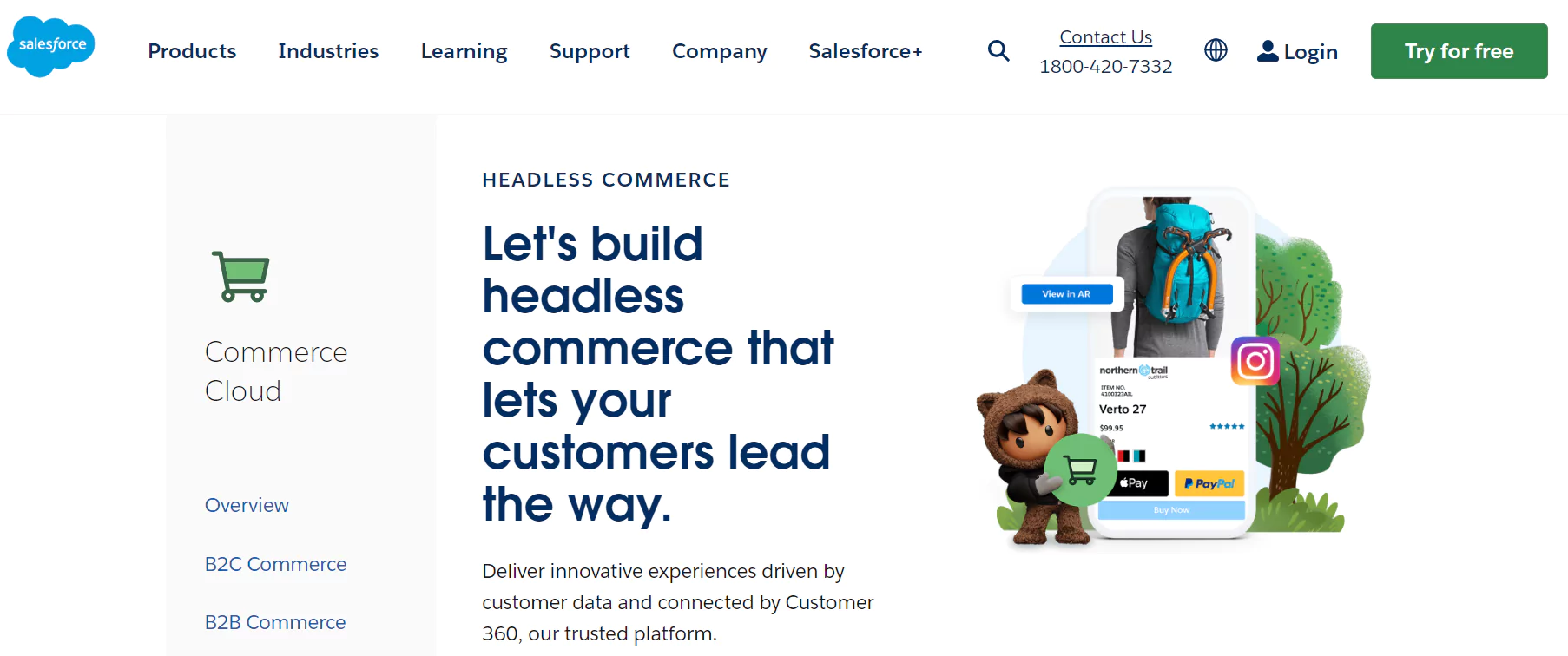
A multi-tenant, cloud-based, and agile headless commerce platform, Salesforce Commerce Cloud is built for midsize and enterprise-level ecommerce brands. It has the best in class API offering the highest adaptability and customized store creation which enables brands to deliver delightful customer experiences on different platforms (social media, web, mobile app).
Key features
- Progressive Web App (PWA) kit enables brands to launch mobile store-fronts that are fast, can be customized to suit your brand requirements, and are React-based.
- Headless content delivery network (CDN), Web Application Firewall (WAF), and fully secure managed platform that helps keep costs in control.
- Data integration with other backend systems like PIM, ERP, and OMS.
Pricing: Salesforce offers the following three plans (Starter, Growth, and Plus) with the pricing available on request.
5) OroCommerce
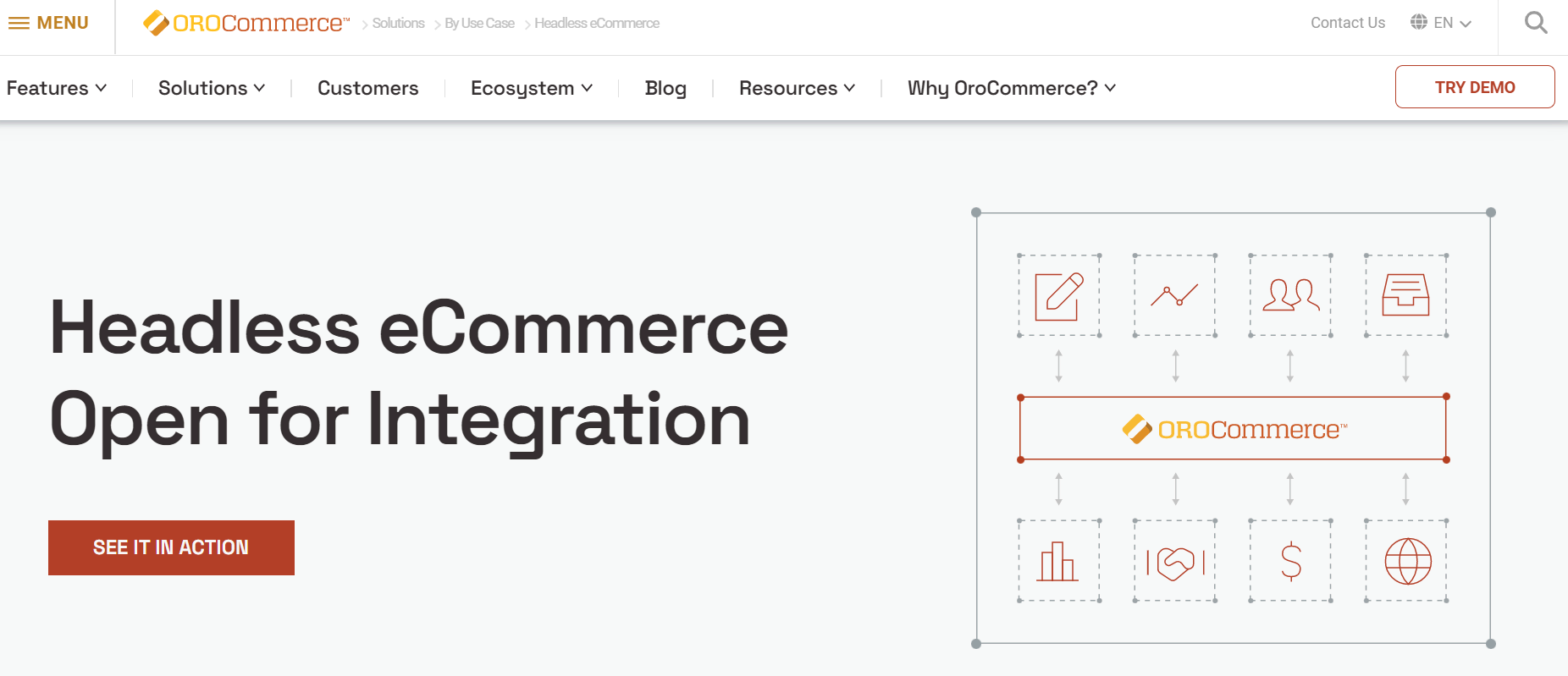
OroCommerce is built keeping in mind brands, manufacturers, wholesalers, and retailers. An open-source scalable solution it is suitable for both on-site setup and the cloud. The platform comes equipped with a wide variety of capabilities for any B2B, B2B2B, B2B2C, or B2B & B2C commerce need.
Key features
- Flexible and high-level customization options.
- Enables digitization of online stores and initiation of online ordering.
- Built using PHP and Symphony enabling business owners to create solid ecommerce storefronts that deliver seamless experiences across devices and customer touchpoints.
Pricing: Structured around unique business needs
6) Commercetools
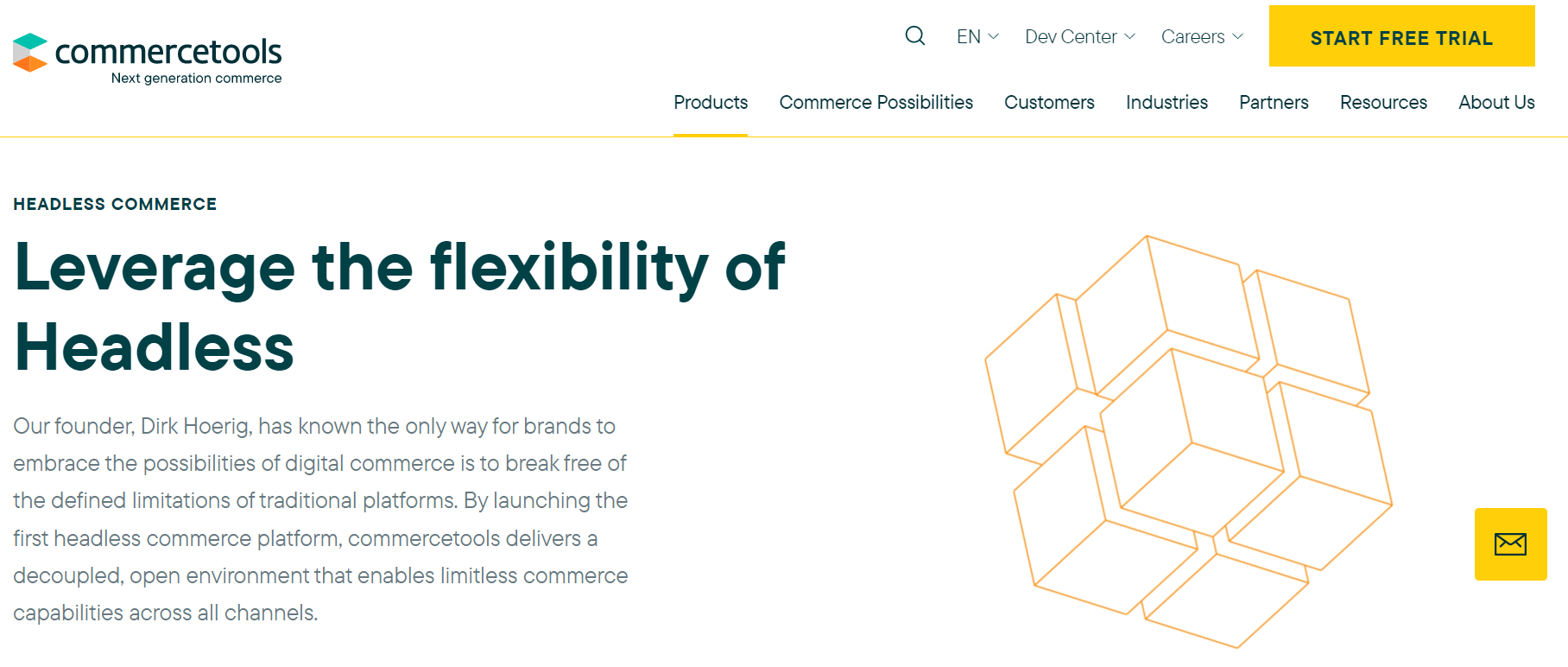
An ecommerce platform that is made on the latest MACH (Microservice-based, API-first, Cloud-native, and Headless) principles, Commercetools provides point-of-scale functionality via cloud deployment.
Key features
- Works hand-in-glove with CMS platforms to deliver memorable customer experiences.
- Built on the latest MACH principles.
- Written on PHP and MySQL.
- 300+ a la carte API endpoints.
- SaaS on-demand pricing models.
Pricing: Comes with a 60-day free trial offer.
7) Commerce Layer
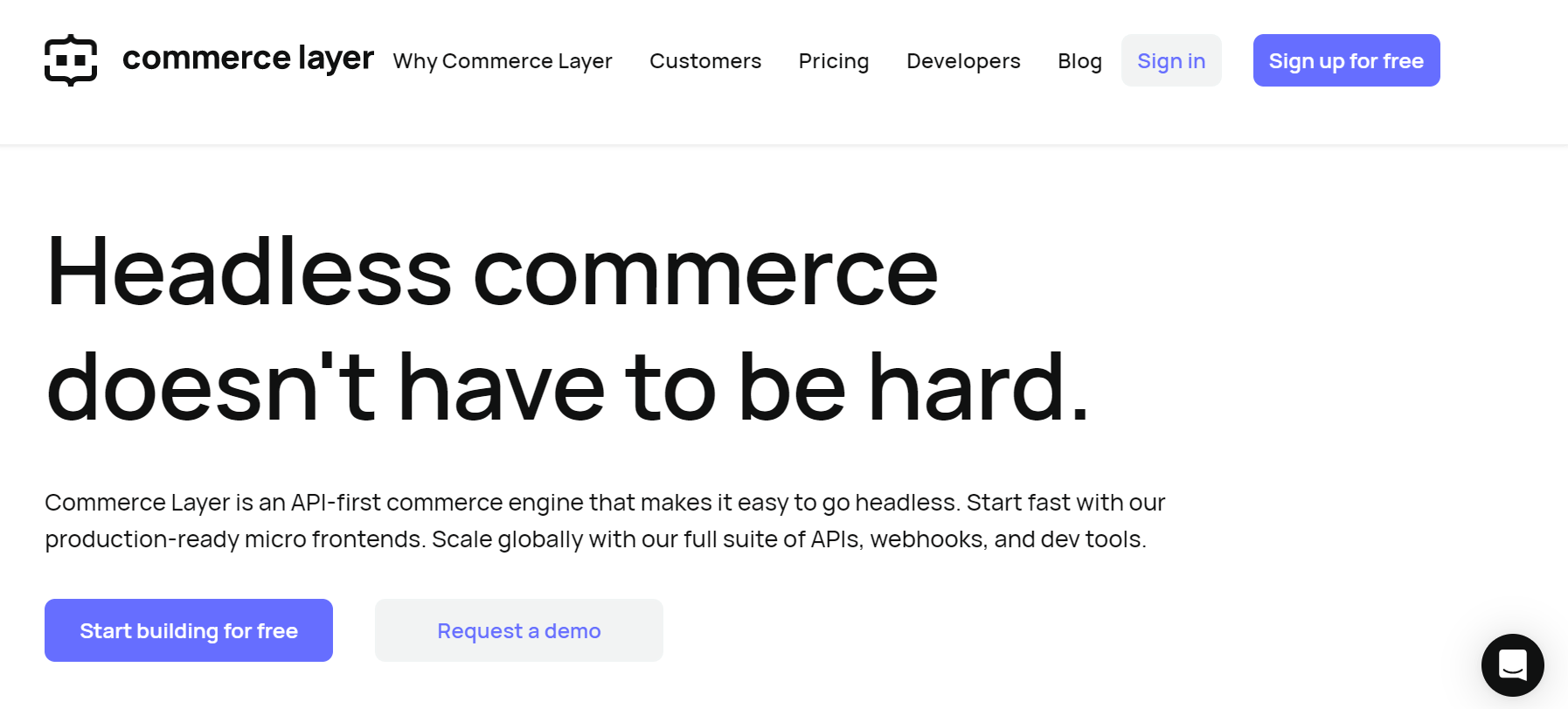
Commerce Layer is a headless platform that enables ecommerce business owners to build their website from scratch and integrate it with the most sought-after shopping features such as localized payment gateways, distributed inventory systems, promotions, and a whole lot of advanced feature sets.
Key features
- API enables business owners to create a scalable ecommerce platform and deliver a localized shopping experience to customers across the globe.
- Business owners can add subscription-based models as well to their storefronts.
- Ready-to-use micro front ends.
- Flexible data model designed to cater to the market you need to sell in.
- Up-to-date reference API reference documents, guides, and FAQs.
Pricing: There are three price plans available developer, growth, and enterprise.
8) Snipcart
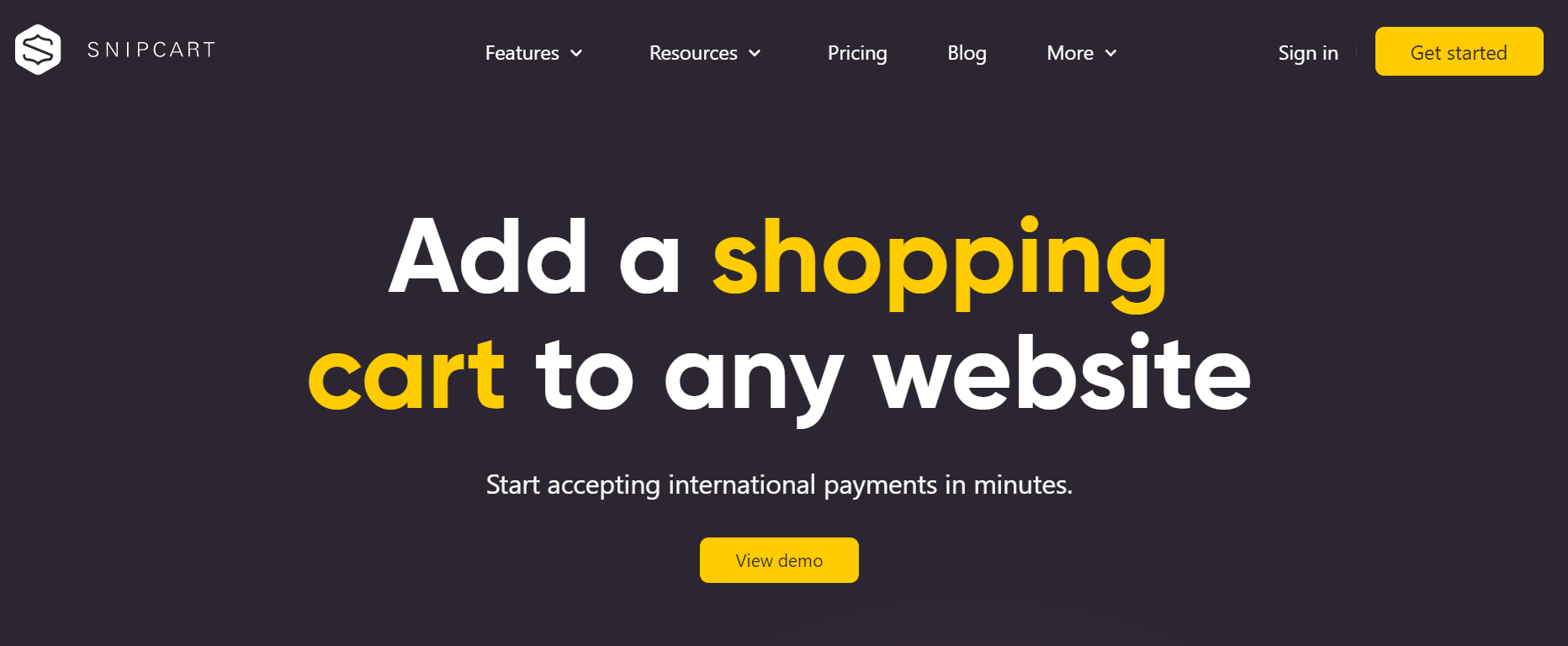
A headless ecommerce platform that helps convert the simplest of websites into an eye-catching ecommerce store. Built on HTML and JavaScript with ecommerce templates stored in the front end making integration with web apps, static websites, and old-school traditional CMS easy.
Key features
- Scaling up your ecommerce store is easy with RESTful API, a JS API, and powerful webhooks.
- Rich ecommerce store features like a customer dashboard, merchant dashboard, multi-currency payment options, payment gateway, automatic invoicing, and a lot more.
- An exhaustive information repository in the form of documents, guides, FAQs, and more.
Pricing: A 2% charge per transaction along with a payment gateway fee.
9) Kibo
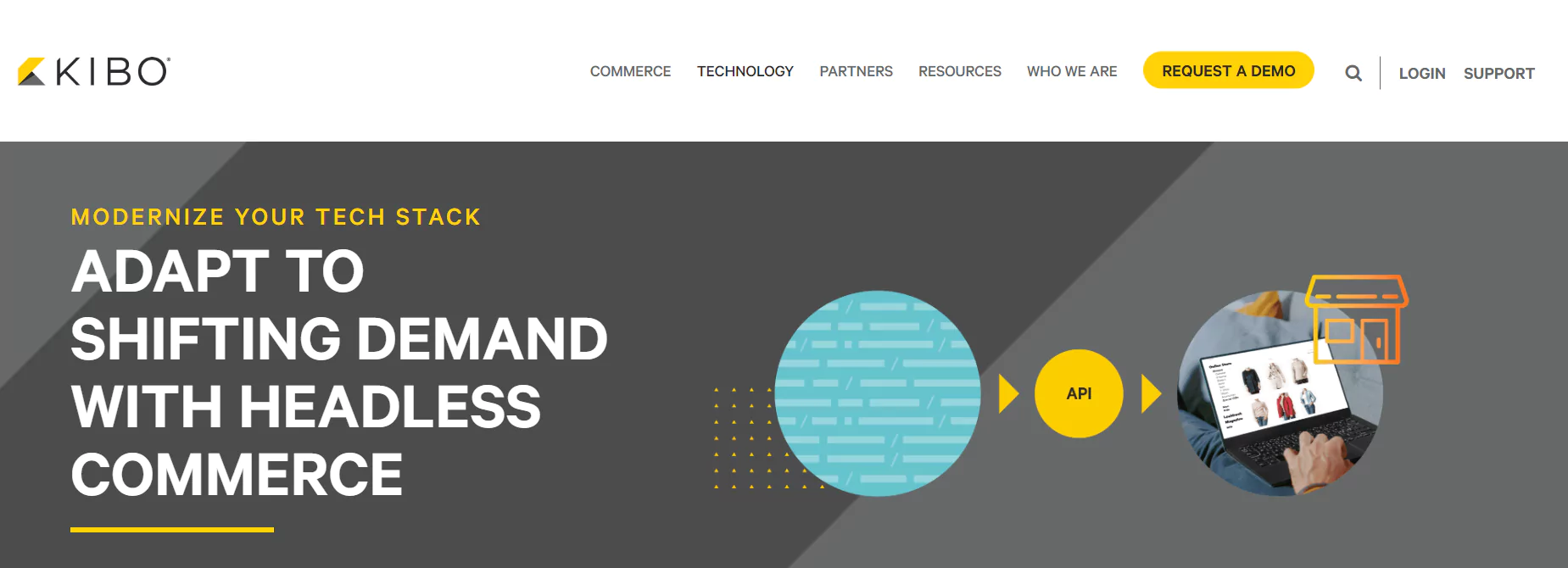
A headless ecommerce platform built on API-first and a microservices model. Decoupling the front-end and back-end enables businesses to create truly personalized shopping experiences on different devices such as social media, web, mobile apps, and wearable smart devices.
Key features
- Enables brands to take orders via various platforms such as social media, mobile apps, marketplaces, AR/VR, wearable devices, and more.
- Completely customizable front-end.
- A hybrid API platform lets non-tech teams take charge.
- Flexible pricing engine for optimized product pricing.
- Exhaustive online help center with detailed documentation.
Pricing: Available on request.
10) Core dna
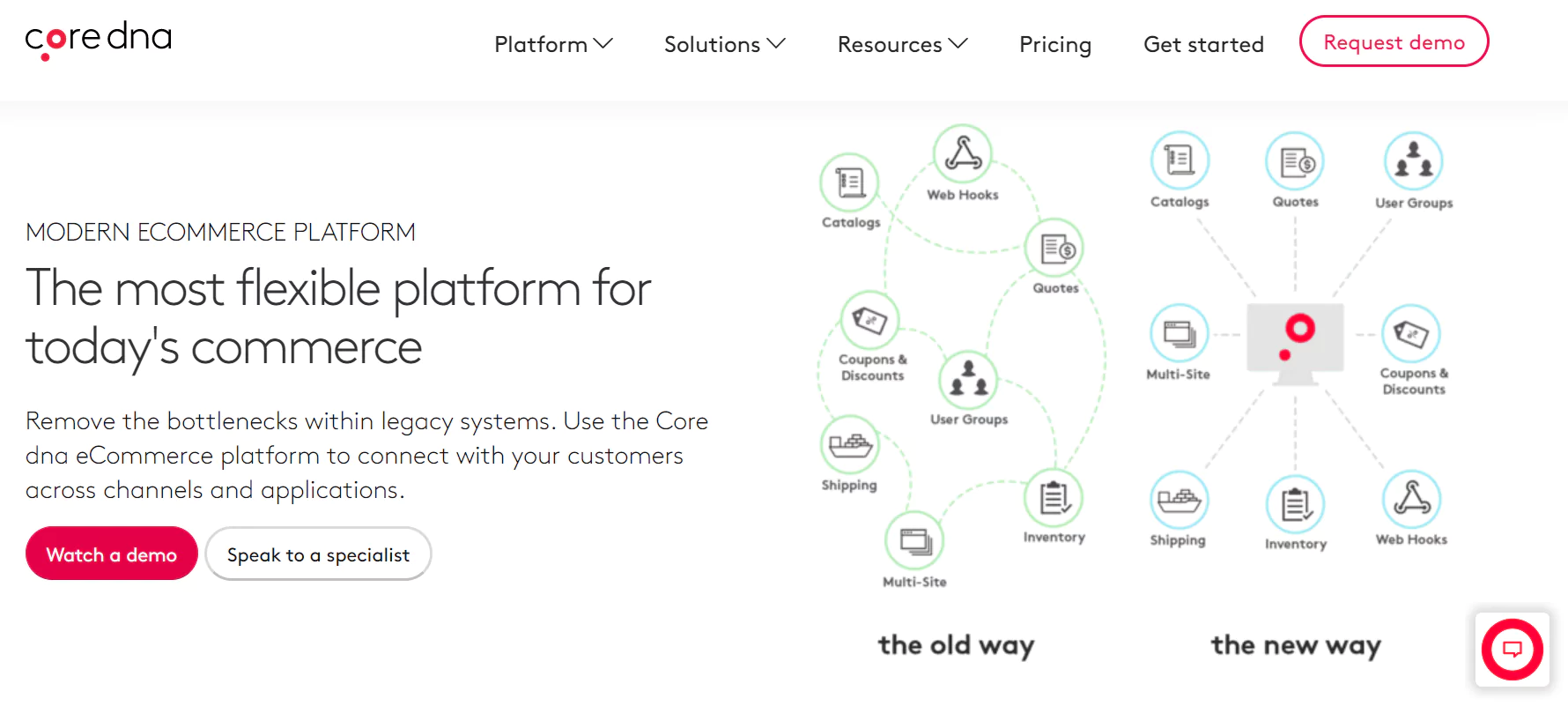
We saved the best for the last. Core dna is an all-in-one hybrid CMS and ecommerce platform. Provides a single dashboard for all your business needs be it B2B, B2C, or multiple websites.
Key features
- The API-first architecture helps create workflows, connect systems, and share information across channels.
- The segmentation feature enables brands to create unlimited segments based on products, pricing, demographics, and more.
- Flexible commerce solutions help built-in industry-specific features, set up advanced customer portals, build engaging product content pages with interactive components, and much more.
Pricing: Core dna offers three plans:
- Core dna CMS starts from $1250 per month.
- Core dna ecommerce starts from $2450 per month.
- Enterprise DXP (custom pricing).
Closing thoughts
The rapid advancements in technology, changing customer preferences and expectations, and digitization together are the perfect recipe to see further growth of the ecommerce business in the both short and long-term. This also means not undermining the importance of delivering personalized customer experiences to stand out in a crowded marketplace like today.
Headless ecommerce not only brings with it immense benefits, but it is also playing an instrumental role in changing the relationship between a customer and a business for good. If you are still contemplating transitioning from traditional architecture to a headless one it’s high time you make the switch.
You may also like
Essential resources for your success
